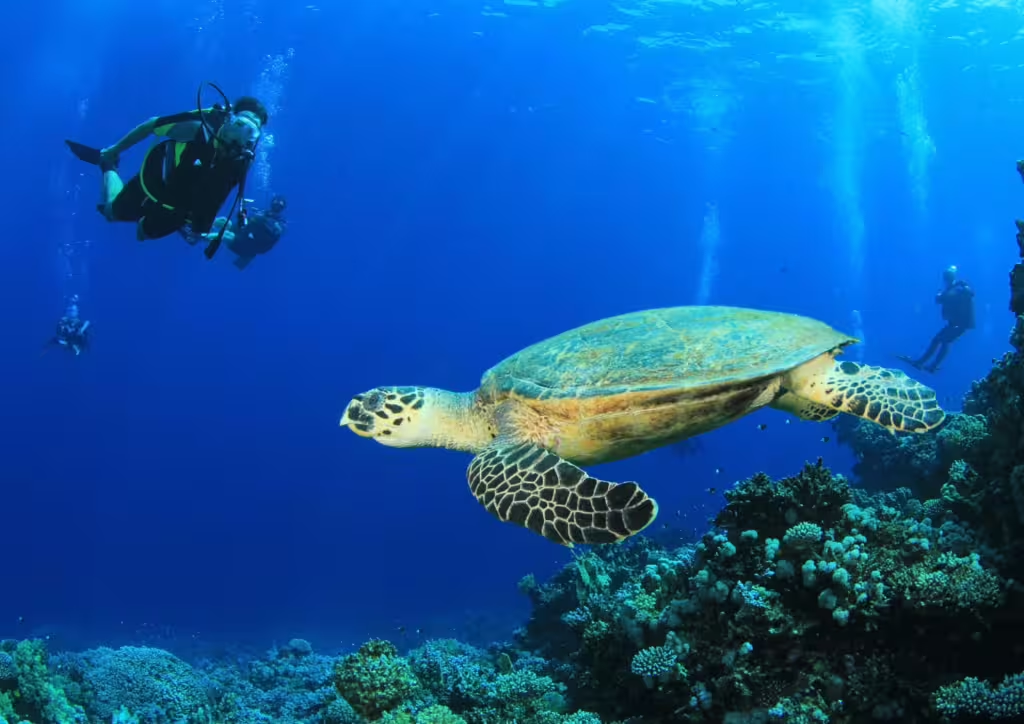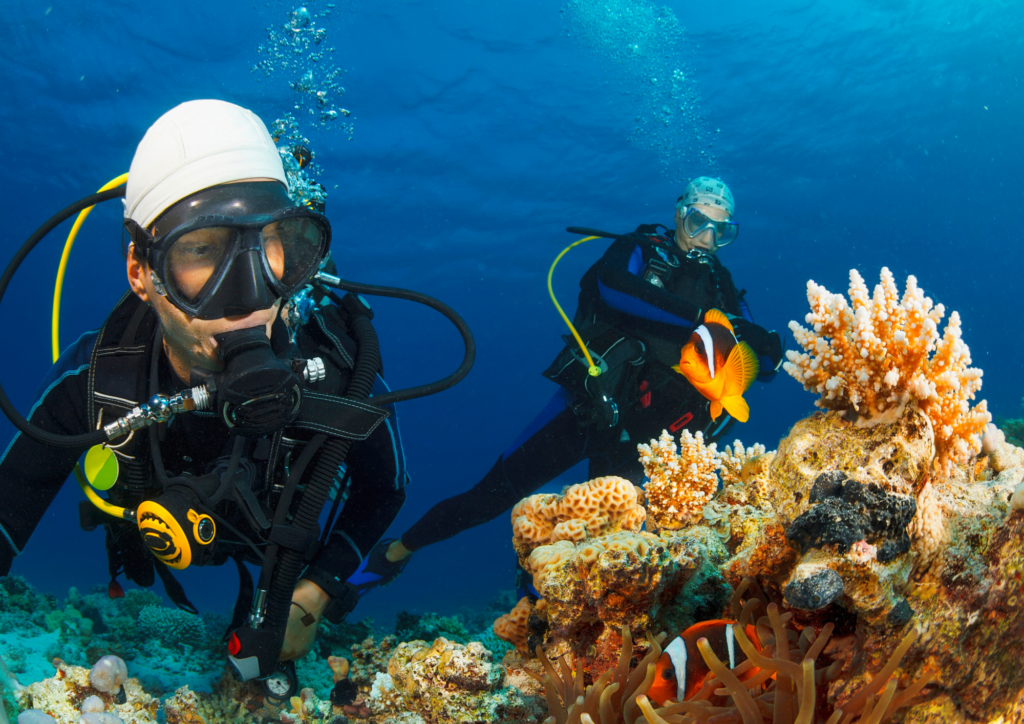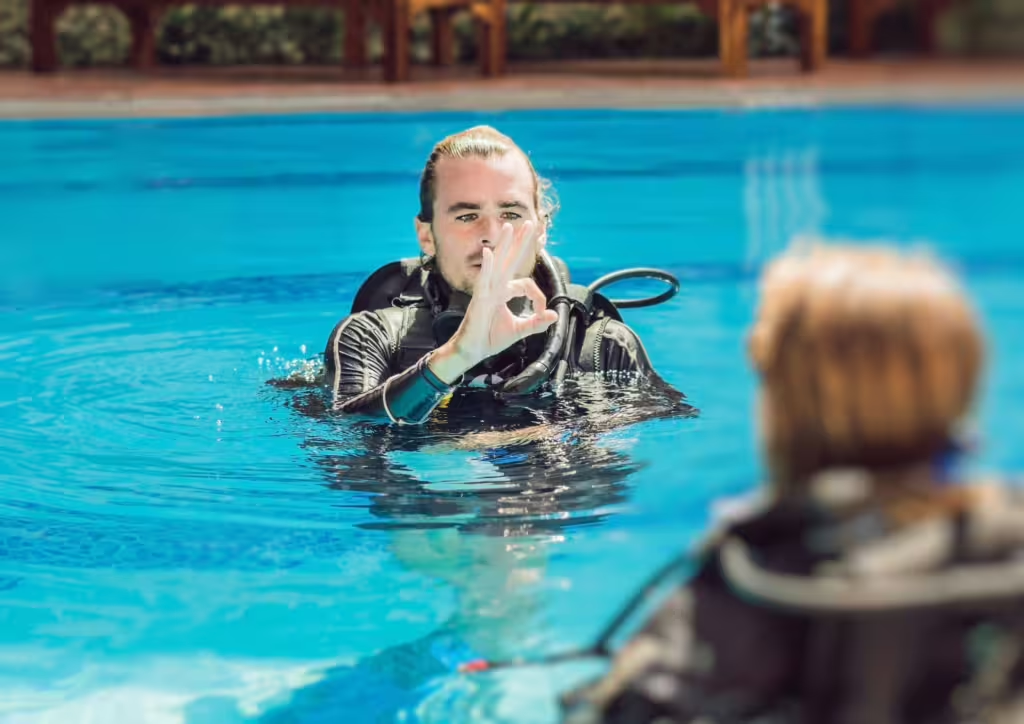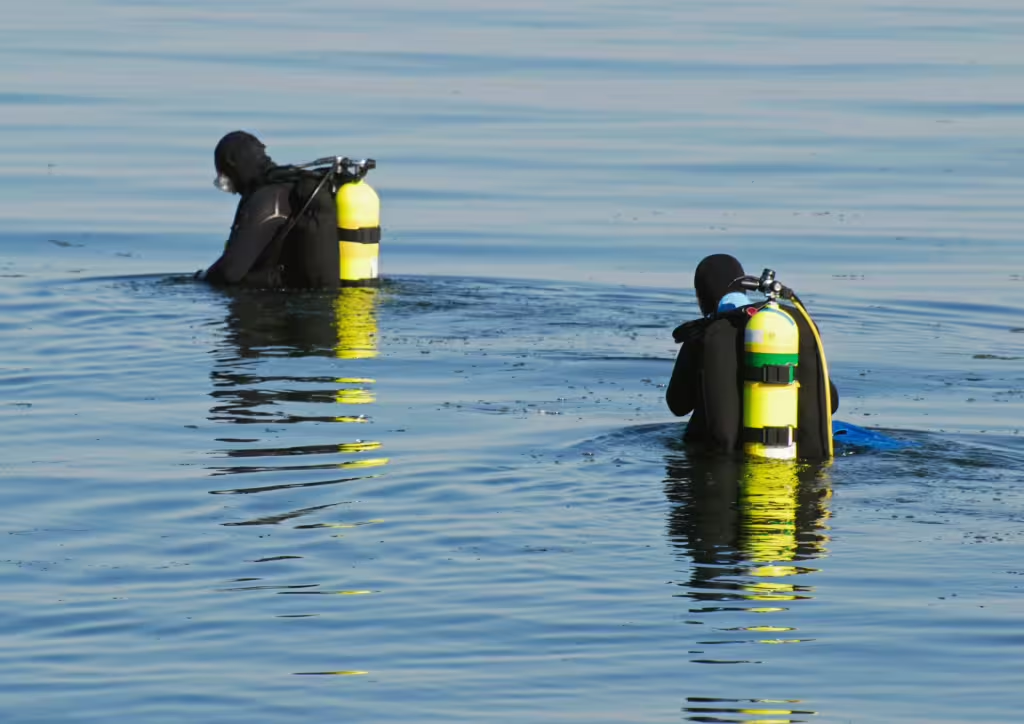While many are aware of the stunning coral reefs and diverse marine life that surround the island, few know the intricacies of Bali diving courses. From unique training methods to the availability of world-class instructors, there’s much more beneath the surface than meets the eye. Whether you’re a novice looking to take your first plunge or an experienced diver seeking to enhance your skills, Bali diving courses offer an array of options to suit every need. In this blog, we will delve into five surprising facts that highlight the allure and quality of diving education in Bali, revealing why it should be at the top of your bucket list for underwater adventures.
Unique Marine Biodiversity in Bali
Bali is renowned not just for its picturesque beaches and serene landscapes but also for its unique marine biodiversity, making it an ideal destination for diving enthusiasts. Enrolling in a Bali Diving Course provides an incredible opportunity to explore the waters surrounding the island, home to a plethora of marine species, ranging from vibrant coral reefs to diverse fish populations.
With over 300 species of coral and countless fish species, a Bali Diving Course allows divers to experience the intricate ecosystems that flourish beneath the waves. The rich biodiversity is often enhanced by the warm waters of the Indian Ocean, creating optimal conditions for marine life to thrive, attracting both novice and experienced divers alike. Additionally, the unique topography of Bali’s underwater environment adds to the allure of diving here.
From steep underwater cliffs to expansive coral gardens, each dive site offers distinctive features that are best explored through a Bali Diving Course. Iconic marine creatures such as manta rays, mola molas (sunfish), and sea turtles ensure that no two dives are ever the same. This vibrant underwater landscape not only makes choosing a Bali Diving Course a thrilling experience but also underscores the importance of conservation efforts to protect this delicate ecosystem for future generations.
Types of Diving Courses Available in Bali

Bali is renowned for its stunning underwater landscapes and diverse marine life, making it a premier destination for diving courses. One of the most popular options is the Open Water Diver certification, a Bali diving course designed for beginners eager to explore the underwater world. This course typically includes theory lessons, confined water training, and four open water dives, offering a comprehensive introduction to scuba diving.
For those looking to advance their skills, the Advanced Open Water Diver course is available, allowing divers to explore deeper waters and engage in specialized dives such as wreck diving or night diving, further enriching their experience. In addition to these foundational courses, Bali offers a variety of specialty diving courses catering to specific interests and skill levels.
For instance, the Enriched Air Diver course is perfect for those wanting to extend their bottom time while minimizing nitrogen exposure. There are also options like deep diving, underwater photography, and dive master training for those pursuing diving as a career. With such a wide range of Bali diving courses available, both novice and experienced divers can find something that suits their interests and goals, ensuring that every dive in Bali is an unforgettable adventure.
The Best Times of Year for Bali Diving

Bali is a diver’s paradise, and knowing the best times to dive can enhance your experience significantly. Generally, the ideal period for diving in Bali is from April to November, when the water is at its clearest and the visibility can reach up to 30 meters. During these months, the weather is dry, which means calmer seas, allowing for safer and more enjoyable dives.
Each season brings unique underwater experiences; for instance, the months from July to September are perfect for spotting manta rays and, occasionally, the majestic Mola Mola, or sunfish, which thrives during the colder months due to nutrient-rich waters. Exploring during these peak times means you’ll witness some of the most vibrant marine life Bali has to offer. Moreover, the off-peak season from December to March is characterized by monsoon rains, which can affect visibility and sea conditions. However, this period can also yield quiet dive sites, allowing for a more intimate experience with the underwater environment.
While some may shy away from diving during this time due to weather concerns, adventurous divers might find this season offers unique opportunities to see species that migrate during the rest of the year. Regardless of when you choose to dive, Bali’s breathtaking underwater world is always waiting to be explored, making a Bali diving course an exhilarating choice year-round.
Essential Gear for Bali Diving Courses
When preparing for a Bali diving course, having the right gear is essential to ensure a safe and enjoyable underwater experience. First and foremost, a well-fitting wetsuit is crucial, as it provides thermal protection and allows for comfortable movement in the water. Many dive schools in Bali rent out high-quality suits, but investing in your own can enhance comfort and fit.
Additionally, a reliable BCD (Buoyancy Control Device) is necessary for maintaining buoyancy and ensuring safety during dives. This versatile equipment also carries your tank and other essential gear, making it one of the most important pieces in your diving arsenal. Another essential item is a good pair of dive fins. These help swimmers navigate through the water effortlessly while conserving energy, allowing divers to focus on the vibrant marine life surrounding them.
A snorkel and mask set is also vital, providing clear vision and ease of breathing while exploring the surface or during safety stops. Besides these basics, divers should also consider accessories like dive computers for tracking depth and time, as well as safety gear such as a dive knife or a whistle. Being equipped with the right gear not only enhances your Bali diving course experience but also ensures your safety as you explore the stunning underwater landscapes of this tropical paradise.
Local Conservation Efforts and Their Impact on Diving

Bali is not just a paradise for divers; it also boasts a rich tapestry of local conservation efforts aimed at protecting its underwater ecosystems. Various organizations and local communities have come together to ensure the sustainability of marine life, ensuring that diving remains a thriving activity for generations to come. These conservation initiatives include coral restoration projects, waste management campaigns, and strict regulations on fishing practices, all of which contribute to the incredible biodiversity found in Bali’s waters.
When taking a Bali diving course, divers often have the unique opportunity to get involved with these local efforts, enhancing their experience and deepening their appreciation for the environment. The impact of these conservation efforts on diving is profound. As a result of cleaner waters and healthier ecosystems, divers often report encounters with vibrant coral reefs, playful turtles, and an array of tropical fish that might not be found in less protected areas.
Furthermore, many diving schools in Bali incorporate environmental education into their courses, teaching divers the importance of protecting delicate underwater habitats. This integrated approach not only promotes awareness and responsibility among divers but also contributes to the overall health of Bali’s marine environment, creating an unforgettable diving experience that is both enjoyable and ecologically mindful.
Cultural Experiences Alongside Diving
Bali is renowned not only for its stunning underwater landscapes but also for its rich cultural tapestry that complements the diving experience. Many Bali diving courses integrate cultural elements, allowing divers to explore traditional Balinese rituals and customs that are intertwined with the marine environment. For instance, participants may have the opportunity to visit local temples and participate in ceremonies that pay homage to the sea, understanding the Balinese perspective on marine conservation and the relationship between the community and the ocean.
This cultural immersion enhances the diving experience, making it not just about encountering vibrant marine life, but also understanding the deep-rooted beliefs and practices that sustain these ecosystems. Additionally, diving courses in Bali often include interactions with local communities, offering divers a chance to engage with fishermen and artisans, learning about their crafts and lifestyles. Such interactions not only elevate the overall diving experience but also foster a greater appreciation for the island’s culture.
These encounters highlight the importance of sustainable practices and community involvement in preserving Bali’s beautiful marine habitats. By diving in Bali, you are not just a visitor but a participant in a vibrant cultural exchange that vertically integrates the thrill of exploration with respect for local traditions.
Diving Into Your Bali Adventure
In conclusion, embarking on a Bali diving course offers more than just a chance to explore the underwater wonders; it opens up a world of unexpected experiences and knowledge. The vibrant marine life, stunning coral reefs, and unique diving zones create unforgettable memories while also developing your scuba skills in a breathtaking environment.
Each fact about Bali’s diving scene showcases why this island has become a hotspot for divers from around the globe. So, whether you’re a novice looking to take your first plunge or an experienced diver seeking new challenges, Bali promises an adventure that goes beyond the surface. Embrace the exploration and consider enrolling in a Bali diving course that aligns with your interests, making the most of your time in this tropical paradise and leaving with stories that will last a lifetime.


I’ve always wanted to experience Bali’s stunning underwater world. This blog post is a great introduction to the island’s diving scene.
Hello Ling Hwa, we’re thrilled to hear you’re interested in exploring Bali’s underwater world! Eko Life Malaysia is not directly related to Bali diving courses, but we’d be happy to help you find a suitable solution for your diving needs in the island. Our team has connected us with local diving centers that can assist you with your inquiries. Please feel free to contact us at [email protected] or +62 857 3891 8262 for further assistance.
Never knew Bali had such a diverse range of marine life! Love the fact that the blog mentioned local conservation efforts – a must-consider for responsible travelers.
Dear Ahmad Noor, thank you for sharing your enthusiasm for Bali’s unique marine biodiversity and local conservation efforts! At Eko Life Malaysia, we’re committed to promoting eco-friendly practices and sustainable tourism. If you have any questions or would like to learn more about our services, please don’t hesitate to contact us at [email protected] or +62 857 3891 8262. Looking forward to hear from you!
This article makes me want to take the plunge (pun intended!). Diving courses and gear are a must for any adventure-seeker. The tips on choosing the right time to dive are super helpful too.
We’re thrilled to hear that you’re inspired to take the plunge and explore Bali’s vibrant marine ecosystem! At Eko Life Malaysia, we believe that diving is not just about the thrill of exploring the underwater world, but also about respecting local traditions and conservation efforts. If you have any questions about choosing the right diving course or gear, please don’t hesitate to reach out to us at [email protected] or +62 857 3891 8262. We’re always here to help.